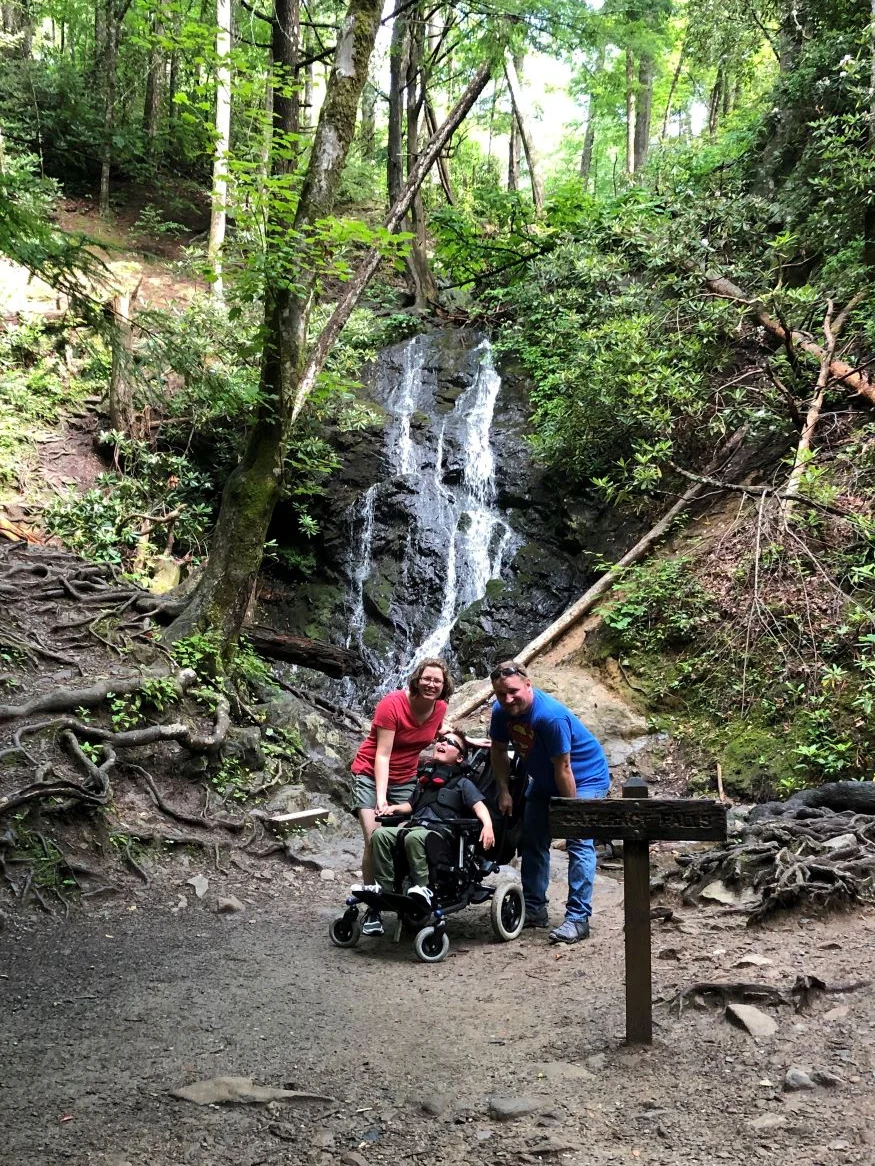Mentoring Is the Time to Talk about Failures
A few years ago, my husband, son, and I took our first-ever family vacation. While most people take a vacation expecting some much needed rest and relaxation, I can officially report that ours was a disaster.
My son has cerebral palsy and extensive special needs, and while we have spent plenty of nights in our local hospital as a family, we had never taken a vacation as one. After much talk, my husband and I decided to visit The Great Smoky Mountains National Park in Gatlinburg, Tennessee. This is about a four-and-a-half-hour drive from where we live in Ohio, so we felt it was doable. Our son had also told us he wanted to see mountains, so this seemed like the perfect place to try our hand at a getaway. My husband researched hotels and hiking trails to be sure we had the right accommodations for our needs and that we could take our son on at least a couple of hikes into the mountains with his wheelchair.
Well, best laid plans and all that.
The trip down to Gatlinburg took seven hours instead of four-and-a-half thanks to a longer than expected lunch stop and then Friday night traffic once we hit our destination. Our son was great in the car and slept most of the ride, but as soon as we stopped the car and were around any other human beings, he started to scream and cry.

Rinse and repeat—that was the story of our vacation. He cried at the restaurant where we stopped for lunch (which meant we turned it into a car picnic instead of eating in the nice air conditioned restaurant). He cried in the hotel lobby as we checked in. He cried at the restaurant where we had dinner. He cried at breakfast, and at the ranger’s station, and at the peaceful waterfall we hiked to. He finally fell asleep as we walked on the second trail and missed all of the things we wanted to show him. After a brief drive through the mountains to sightsee (during which he slept), we spent the rest of the day in the hotel, and after a good nap and some much needed quiet, he was so much happier. We ate lunch and dinner in the hotel room and tried to make it as stress-free for our son as we could. We left the next day and came home from our short weekend getaway feeling like it was a complete failure, though.
Learning through Failure
Having shared this story with some friends and colleagues, I know we are not the only ones who have had a horrible vacation before, and we won’t be the last. But what I can say is that I learned so much from this experience—and that may be the most important piece in all of this.
We will all fail at something at some point in our lives, and we need to be sure we are learning from those failures—otherwise, we might be doomed to repeat those mistakes over and over again. Mentoring relationships should absolutely dig into those times when we failed and use them as a learning experience. For example, this could be a mentor sharing how they failed in a particular situation, or it could be the mentee trying something and reporting back to the mentor that it didn’t work. In both cases, having a candid conversation about the attempt and subsequent failure is critical. That is how we learn. So for all of you out there who have tried and failed, here is what I’ve learned.

It’s okay to fail.
No one is perfect, and no amount of planning will make everything go exactly as you want it to or wish it would. It’s easy to believe that everyone else is doing wonderfully and succeeding in everything they attempt, but the truth is that we all stumble and fall from time to time. Interestingly, an EY survey showed that Gen Z is not afraid to make mistakes, especially when they are able to learn from them. This is an attitude we could all stand to embrace a little more. Making this attitude part of your mentoring mindset can help you gain even more from your relationship than if you just shared what is working well and perfect in your life.
Look for the positives in the negatives.
Failing at something sucks. It can literally hurt your livelihood, or your family, or your health, or some other major aspect of your life. But for all of those rare major failures, there are numerous small failures that take place frequently. It can weigh you down to focus just on the failings and the negatives surrounding them, which is why I try to find the positives in these situations. Yes, our family vacation did not go as planned and was pretty bad overall, but there are also some positives that came out of it. We learned that our son is a really awesome car companion who can sleep peacefully on long journeys. After hearing some horror stories from other families about their car rides with their children with special needs, we will take this victory and be glad for it.
Adjust your plans and expectations.
My last lesson learned from failure revolves around future plans and expectations. As my husband and I discovered on our vacation, our son is happiest when he’s with us and we’re just hanging out together—no expensive hotels or trips needed. As a result, our next vacation will be a small outing planned within our hometown so that we cut down on the car ride and have the comfort of our own home and beds at the end of the day.
As for how this applies to you, when discussing your own past failures with your mentee or mentor, think about what you can glean from that experience and how those new understandings can impact your future plans. Do you need to adjust your ideas around what success can look like? Do you need to change your expectations for your goals? Do you need to come up with a different way to try to achieve your goal? Regardless of what you decide, use this opportunity to examine your situation candidly so that you can be successful later. So for everyone out there who has tried and failed at something, you are not alone. Here’s hoping that you learned a few things along the way, as well.




